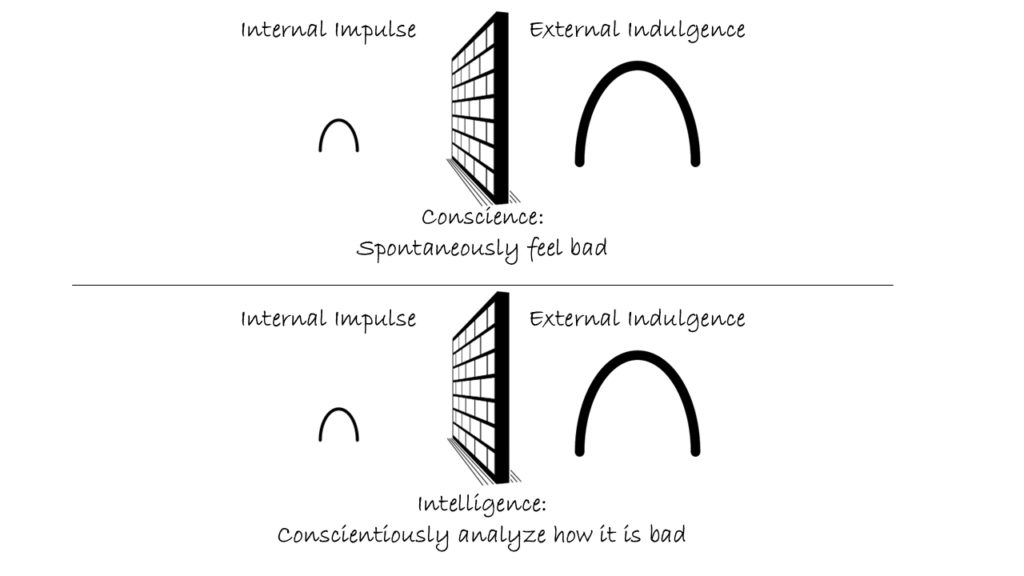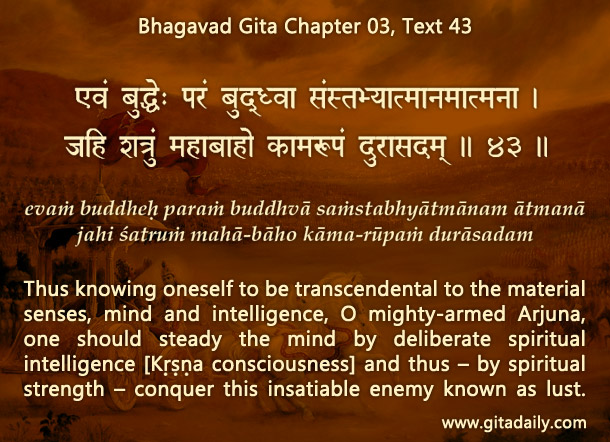
Whenever we struggle with conditionings that impel us toward actions we know we shouldn’t do, two defense mechanisms can protect us: conscience and intelligence.
Conscience as a spontaneous deterrent
Conscience operates at the emotional level, making us feel bad when we do something wrong. For example, if we speak hurtfully during an argument, our conscience might make us feel guilty as soon as we realize the harm caused. This guilt can prompt us to apologize and mend the situation. However, our conscience needs proper training to ensure it is aligned with actual morality and not just societal norms. Without such training, we might feel guilty for actions that aren’t inherently wrong or fail to feel guilt for genuinely harmful actions.
Intelligence as a rational safeguard
When our conscience fails to act—perhaps due to inadequate moral training—we can rely on our intelligence. Intelligence operates through understanding and reasoning, helping us recognize why an action is harmful and what its consequences might be. For this to happen effectively, we need to educate ourselves about the negative outcomes of our impulses and regularly recollect those points when temptation arises. For instance, Bhagavad-Gita 18.38 explains how pleasures that seem like nectar in the beginning often turn into poison later. Intelligence allows us to foresee such outcomes and stop ourselves before indulging.
Developing these defenses
Both conscience and intelligence can be cultivated. A well-trained conscience ensures we spontaneously feel remorse for wrongdoing, while a developed intelligence ensures we consciously analyze and avoid harmful actions. The Bhagavad-Gita (3.43) emphasizes situating ourselves in our spiritual identity using intelligence, as this empowers us to transcend destructive impulses.
Summary:
- Conscience acts as a spontaneous mechanism that makes us feel bad after indulging in harmful impulses.
- Intelligence serves as a rational safeguard, analyzing and recollecting why certain actions are harmful to prevent indulgence.
- Developing both conscience and intelligence enables us to stay protected from self-destructive tendencies and act wisely.
Think it over:
- Identify an area where your conscience acts effectively as a deterrent and plan how you can better listen to it.
- Identify an area where your conscience is weak and consider how you can equip your intelligence to act as a backup.
- For a specific impulse, list three points you can recall to activate your intelligence as soon as the impulse arises.
***
03.43 Thus knowing oneself to be transcendental to the material senses, mind and intelligence, O mighty-armed Arjuna, one should steady the mind by deliberate spiritual intelligence [Kṛṣṇa consciousness] and thus – by spiritual strength – conquer this insatiable enemy known as lust.


Leave A Comment